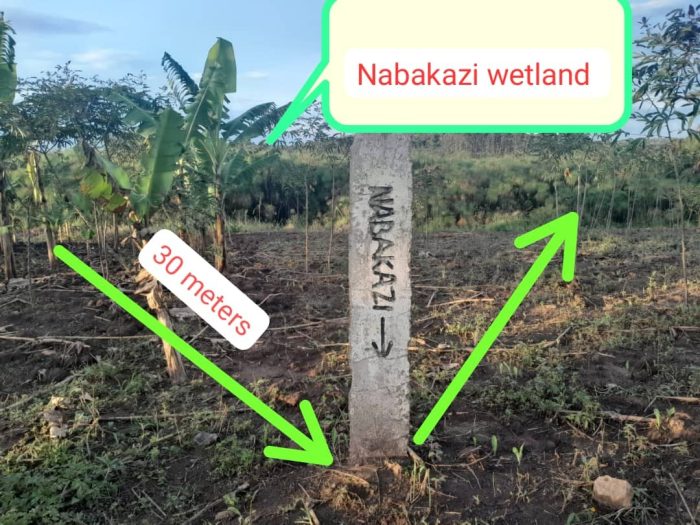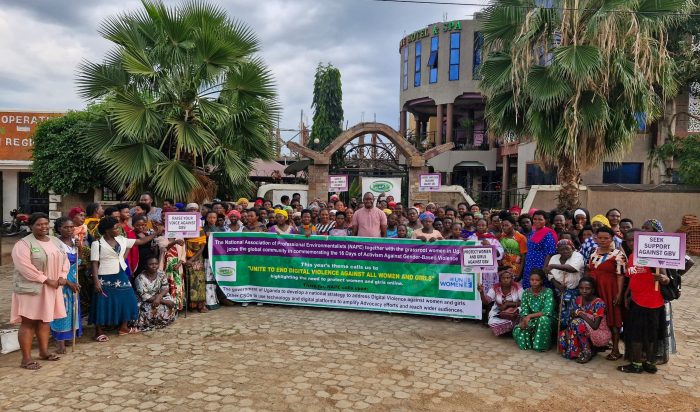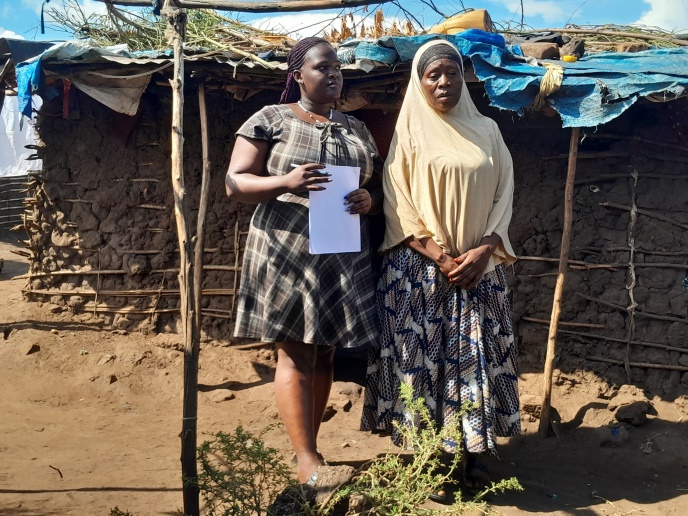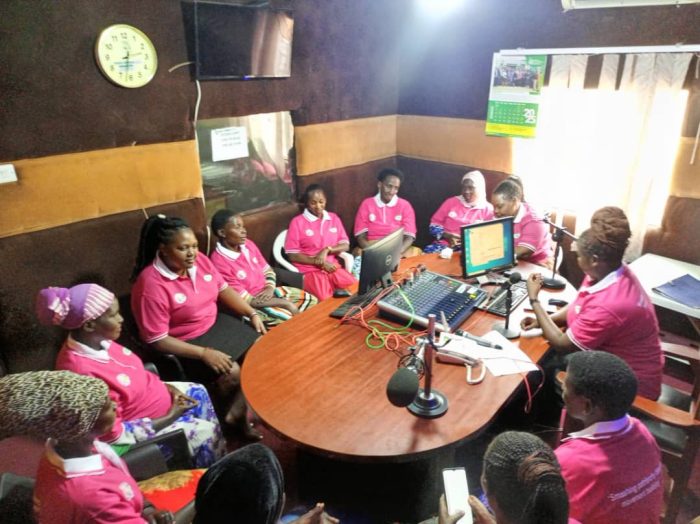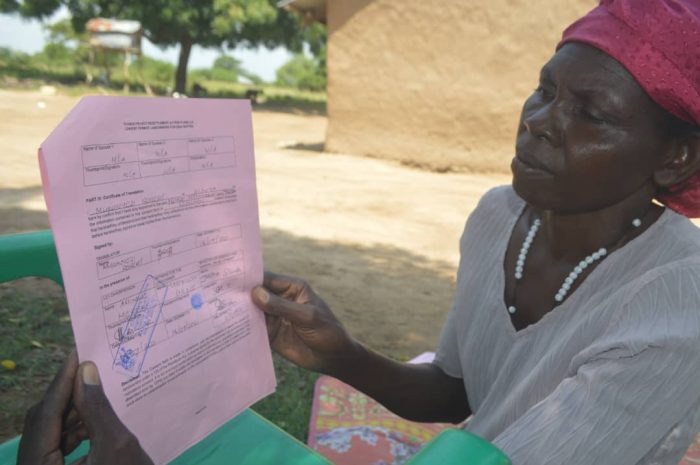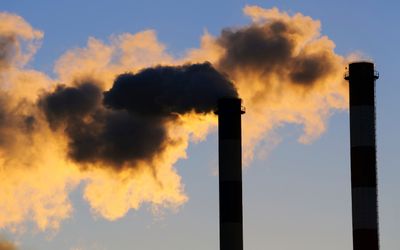
The National Association of Professional Environmentalists (NAPE), Oil Watch Uganda, African Institute for Energy Governance (AFIEGO) and several other environmental groups have rallied to demand delegates to the United Nations Framework Convention on Climate Change (UNFCCC), Parliamentarians and the global community to take urgent and meaningful action on climate change this week in Germany.
The action is part of a global day of action in more than 50 countries calling for a more just and sustainable energy system and for policymakers to end the undue influence and obstruction of climate policy by transnational fossil fuel corporations.
NAPE recognises the challenges associated with climate change adaptation in a poor country like Uganda and the lack of willingness for developed countries to play their role in assisting poor countries to adapt climate change. We have, therefore, decided to resort to empowering communities; through awareness raising, so that they can be able to demand for responsible behaviour from the worlds renowned polluters.
Every day we feel the effects of climate change—a crisis we did little to create. Today, the people of Uganda are saying ‘enough is enough. It is time for community-based renewable energy systems and policy that is determined by the people, not the world’s largest energy corporations. It’s time to kick big polluters out of the process for good.
NAPE is also going to engage our country negotiators to stand firm for the African cause and to resist intimidation by the world’s powerful corporate powers as the only way to avoid the corporate capture of the UNFCCC process.
We, therefore, join the rest of the world in calling for a more just and sustainable energy system and for policymakers to end the undue influence and obstruction of climate policy by transnational fossil fuel corporations and call on all Ugandans to sign the petition to kick big polluters out.
Climate change is one of the greatest challenges facing the country and humanity in general. Uganda’s National Adaptation Programme of Action (NAPA) cites an average temperature increase in the country of 0.28°C per decade between 1960 and 2010, where the months of January and February have been the most affected by this warming trend, averaging an increase of 0.37°C per decade. The frequency of hot days has increased significantly, while the frequency of cold days has decreased. Historical records of Uganda’s glaciers have shown that the ice caps on the Rwenzori Mountains have shrunk significantly in the last 100 years.
This change in temperature patterns has been linked with drought and the consequent increases in cattle deaths within the cattle corridor. The increased drought, has led to an increased water stress in many parts of the country. In addition, changes in rainfall patterns have been observed, there is decreased rainfall which is also less reliable and not evenly distributed. Floods and landslides are on the rise and are more intense in some parts of the country.
Today’s event calling to Kick Big Polluters Out is part of the global Reclaim Power movement led by a coalition focused on transforming the world’s energy systems in order to ensure the people’s right to clean and renewable energy . Reclaim Power challenges dirty and harmful energy sources and is organizing for a swift and just transition to public and community controlled renewable energy systems.
Last week’s events came just one week before delegates to the United Nations Framework Convention on Climate Change (UNFCCC) convene in Bonn, Germany for the last time to negotiate text in preparation for the 21st Conference of the Parties (COP 21) in Paris in December. COP 21 is largely seen as a make-or-break moment for the process which has so far maintained a snail’s pace of progress since its inception in 1992.
Taking a page out of Big Tobacco’s playbook, the fossil fuel industry has positioned itself as part of the solution to the very crisis it has knowingly driven for more than 30 years. Recently, some of the world’s biggest polluters announced a collaboration to advise governments on how to combat global warming without harming their economies. Such a corporate-driven initiative is just one of many example of how effectively the industry has inserted itself into the process.
“For decades, the fossil fuel industry has hidden behind a smokescreen of doubt, cooptation and denial,” said Katherine Sawyer of Corporate Accountability International. “Global South governments have confronted and stopped this before—with Big Tobacco. It’s time to put energy back in the people’s hands and reclaim power!”
From aggressive lobbying at the national level to financial sponsorship of international meetings, the industry interferes at all levels. Industry-driven “solutions”—like carbon-markets and carbon sequestration—are one of the primary obstacles to progress toward the local, community-driven, sustainable energy solutions needed for much of the Global South. Recently, Peabody Energy launched a campaign to alleviate “energy poverty”—a term used to rationalize the expansion of coal for the so-called benefit of those with the least resources and the least institutional power.
In April, it was revealed that COP21 in Paris would be yet another “Corporate COP” with the announcement of Engie, EDF and Suez Environment as lead sponsors. Suez Environment, infamous for its dealings in water privatization, is partially owned by GDF Suez, which profits from fracking operations around the world, puttingit at direct odds with the advancement of the treaty. EDF and Engie’s coal operations account for the equivalent of nearly half of France’s entire emissions.
Last week’s events are part of a rapidly growing movement of people demanding that big polluters are removed from the climate policymaking process. To date more than 50 petitions have joined the call, which was launched in May of 2015.
By Kamese N. Geoffrey
senior Programme Officer in-charge of Energy, Climate Change and Chemicals management
National Association of Professional Environmentalists (NAPE).

